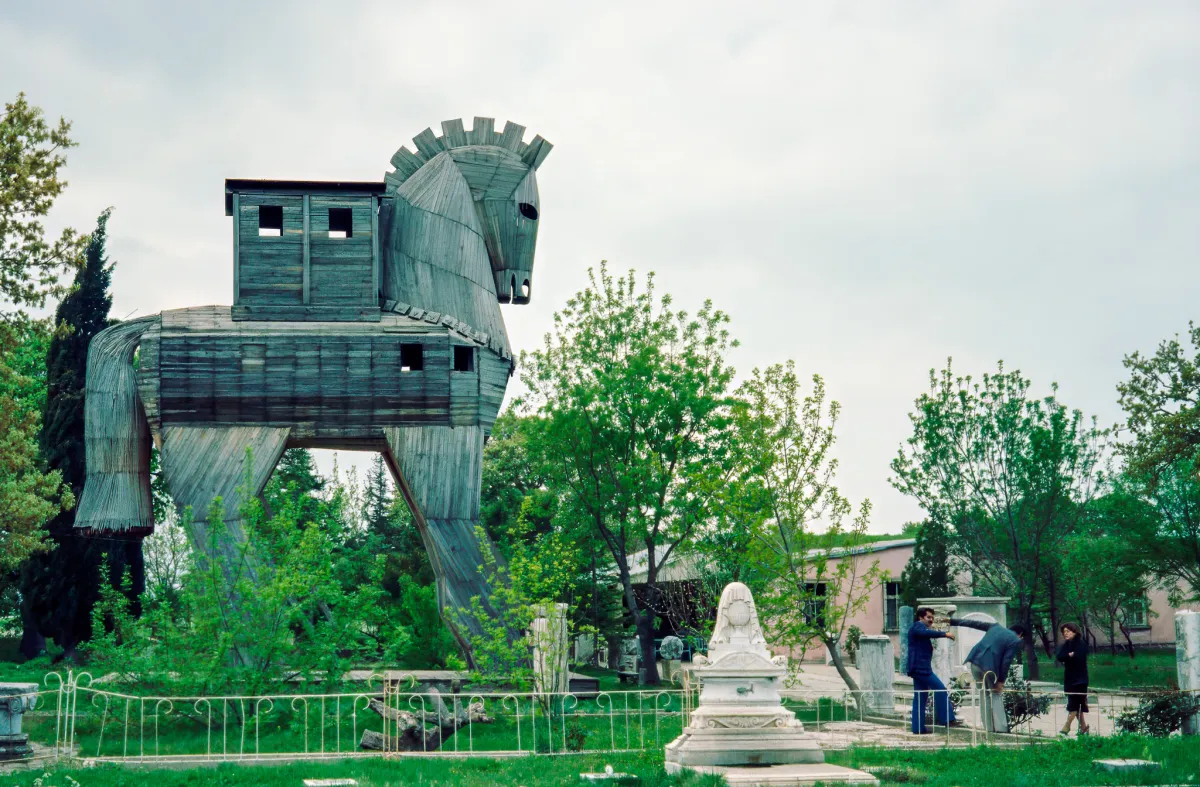Whether the story of Troy and the Trojan War is true or not, the term ‘Trojan Horse‘ firmly remains part of modern vocabulary. This photo is of a small ‘tourist’ model at the supposed site of Troy in Turkey which you could climb into and ‘experience what it was like for those ancient Greek warriors hidden inside’. Obviously the original would not have had windows, although nothing would surprise me.

It has been over 3,000 years but people are still falling for obvious scams, such as shelling out (large) sums of money to arrange for the receipt of winnings from a lottery, often on the other side of the world, which they never entered in the first place. Or had never even heard of.
The Trojan Horse, an enduring symbol of cunning and deception, stands as a timeless tale of intrigue from ancient Greece. This legendary stratagem played a pivotal role in the fall of the city of Troy during the Trojan War, a story recounted in Homer’s epic poem, the “Iliad.”
According to Greek mythology, after a decade-long siege, the Greeks devised a plan to infiltrate the impenetrable walls of Troy. They constructed a massive wooden horse, which they left at the city’s gates as a supposed offering to the gods, signifying their retreat from the war. Inside the hollowed-out belly of the horse, Greek soldiers hid in silence, waiting for nightfall.
The Trojans, believing the horse to be a trophy and a token of victory, brought it within the city walls as a symbol of their triumph over the Greeks. That night, while the Trojans celebrated their perceived victory with feasting and revelry, the Greek warriors emerged from their wooden hiding place, opening the city gates for their comrades who had returned under cover of darkness. Troy, lulled into complacency by the apparent withdrawal of the Greek army, was caught off guard, leading to its ultimate downfall.
The Trojan Horse’s legacy transcends its ancient origins, finding its way into countless stories, idiomatic expressions, and cultural references. It embodies the timeless lesson that appearances can be deceiving, and one must remain vigilant, even in the face of apparent victory.
In a world where deception and cunning is the norm, the story of the Trojan Horse serves as a reminder of the importance of critical thinking and skepticism, urging us to question what may seem too good to be true.
In computing, a Trojan horse is any malware that misleads users of its true intent by disguising itself as a standard program. It is a big, highly sophisticated and very lucrative business in the modern world.
It has been speculated that the story of the Trojan Horse actually resulted from later poets creatively misunderstanding an actual historical use of a siege engine at Troy, as such pieces of equipment were either named after animals or were in the shape of animals.